第29章 LETTER 5(2)
I say the same of all those modern compositions in which we find rather the heads of history,than any thing that deserves to be called history.
Their authors are either abridgers or compilers.The first do neither honor to themselves,nor good to mankind;for surely the abridger is in a form below the translator;and the book,at least the history,that wants to be abridged,does not deserve to be read.They have done anciently a great deal of hurt by substituting many a bad book in the place of a good one;and by giving occasion to men,who contented themselves with extracts and abridgments,to neglect,and through their neglect,to lose the invaluable originals:
for which reason I curse Constantine Porphyrogenetes as heartily as I do Gregory.The second are of some use,as far as they contribute to preserve public acts,and dates,and the memory of great events.But they who are thus employed have seldom the means of knowing those private passages on which all public transactions depend,and as seldom the skill and the talents necessary to put what they do know well together:they cannot see the working of the mine,but their industry collects the matter that is thrown out.It is the business,or it should be so,of others to separate the pure ore from the dross,to stamp it into coin,and to enrich,not encumber mankind.When there are none sufficient to this task,there may be antiquaries,and there may be journalists or annalists,but there are no historians.
It is worth while to observe the progress that the Romans and the Greeks made towards history.The Romans had journalists or annalists from the very beginning of their state.In the sixth century,or very near it at soonest,they began to have antiquaries,and some attempts were made towards writing of history.I call these first historical productions attempts only or essays:
and they were no more,neither among the Romans,nor among the Greeks."Graeci ipsi sic initio itarunt ut noster Cato,ut Pictor,ut Piso."It is Antony,not the triumvir,my lord,but his grandfather the famous orator,who says this in the second book of Tully De Oratore ,'he adds afterwards,"Itaque qualis apud Graecos Pherecydes,Hellanicus,Acusilaus,aliique permulti,talis noster Cato,et Pictor,et Piso."I know that Antony speaks here strictly of defect of style and want of oratory.They were,"tantummodo narratores,non exornatores,"as he expresses himself:but as they wanted style and skill to write in such a manner as might answer all the ends of history,so they wanted materials.Pherecydes wrote something about Iphigenia,and the festivals of Bacchus.Hellanicus was a poetical historian,and Acusilaus graved genealogies on plates of brass.Pictor,who is called by Livy "orum antiquissimus,"published,I think,some short annals of his own time.
Neither he nor Piso could have sufficient materials for the history of Rome;nor Cato,I presume,even for the antiquities of Italy.The Romans,with the other people of that country,were then just rising out of barbarity,and growing acquainted with letters;for those that the Grecian colonies might bring into Sicily,and the southern parts of Italy,spread little,or lasted little,and made in the whole no figure.And whatever learning might have flourished among the ancient Etrurians,which was perhaps at most nothing better than augury,and divination,and superstitious rites,which were admired and cultivated in ignorant ages,even that was almost entirely worn out of memory.Pedants,who would impose all the traditions of the four first ages of Rome,for authentic history,have insisted much on certain annals,of which mention is made in the very place I have just now quoted.